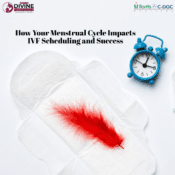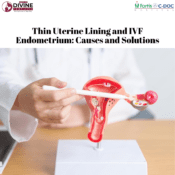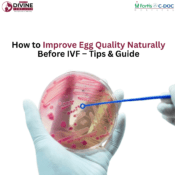

Understanding IVF Medications: A Guide for Beginners
Introduction
Starting an IVF (In Vitro Fertilization) journey is a big step—one filled with hope, questions, and sometimes confusion. One of the most important yet overwhelming aspects of IVF treatment is understanding the medications involved. These aren't just pills or injections; they are the cornerstone of your fertility treatment and are essential to every stage of the process.
If you're new to IVF or preparing for your first cycle, you're likely wondering:
What medications will I need? How do they work? What are the side effects? And how can I manage it all?
This guide is here to answer those questions in a clear, approachable way. From medication names to timelines, side effects to emotional support, we’ll cover everything you need to know.
Whether you're exploring treatment options at the Best IVF Centre in Delhi or browsing the IVF medication price list online, this guide is tailored for first-time IVF patients, couples beginning treatment, or anyone wanting to learn about the process.
Let’s demystify the IVF medications list and empower you with the knowledge you need to feel confident and prepared.
I. Brief Overview of IVF and Its Significance in Fertility Treatment
In Vitro Fertilization (IVF) is one of the most effective forms of assisted reproductive technology (ART) used to help individuals and couples conceive. IVF involves stimulating the ovaries to produce multiple eggs, retrieving those eggs, fertilizing them with sperm in a lab, and transferring the resulting embryo(s) into the uterus.
Why is IVF so significant?
- It offers hope for couples facing infertility due to age, medical issues, or unexplained reasons.
- It's a solution for same-sex couples and single parents.
- It enables genetic screening through advanced IVF techniques.
- It’s highly customizable and adaptable to individual needs.
With that said, IVF isn’t just a single procedure—it’s a carefully timed medical process, and medications play a pivotal role.
II. Importance of Understanding IVF Medications
Why IVF Medications Are Essential
IVF medications are not just supportive—they're foundational to the entire treatment. They help:
- Stimulate the ovaries to produce multiple mature eggs instead of the usual one per cycle.
- Trigger ovulation at the ideal moment for egg retrieval.
- Support the uterus in becoming a welcoming environment for embryo implantation.
How Medications Support the IVF Process
Every step of IVF relies on medications. Here's how:
- Ovulation stimulation increases your chances of retrieving healthy eggs.
- Trigger shots ensure the eggs mature at the right time.
- Hormone support helps thicken the uterine lining for successful implantation.
- Personalized protocols are created based on your age, hormone levels, medical history, and more.
Understanding your IVF medications schedule helps you stay on track, reduce stress, and avoid common pitfalls.
III. Common Types of IVF Medications
Let’s break down the core categories of IVF medications and what they do.
1. Ovarian Stimulation Drugs
These medications encourage your ovaries to produce multiple eggs.
- Gonadotropins (FSH, LH): Hormones that mimic your body’s natural reproductive hormones.
Common examples:
- Gonal-F
- Menopur
- Follistim
Note: Menopur contains both FSH and LH and is often used when a more aggressive stimulation is required.
2. Ovulation Trigger Shots
Once your follicles are ready, it's time to mature the eggs for retrieval.
- Human Chorionic Gonadotropin (hCG): Triggers final maturation of the eggs.
Common examples:
- Ovidrel
- Pregnyl
These are administered roughly 36 hours before egg retrieval.
3. Medications to Prevent Premature Ovulation
To ensure that ovulation doesn't occur too early, doctors prescribe either:
- GnRH agonists (e.g., Lupron) – These regulate the pituitary gland.
- GnRH antagonists (e.g., Cetrotide, Ganirelix) – These provide immediate suppression.
These drugs help synchronize your cycle for precise egg collection.
4. Luteal Phase Support Medications
After embryo transfer, your body needs help to maintain an optimal uterine environment.
- Progesterone: Vital for preparing and sustaining the uterine lining.
Forms include:
- Injections (e.g., progesterone in oil)
- Suppositories
- Gels
This is often continued until a pregnancy is confirmed and stabilized.
5. Oral Medications
Used in some protocols or prior to starting injections.
- Clomiphene Citrate (Clomid): Stimulates ovulation by increasing FSH.
- Letrozole (Femara): Often used in patients with PCOS or those sensitive to Clomid.
These oral options are typically less expensive and have milder side effects but may be less effective for advanced IVF cases.
IV. Medication Timeline in the IVF Process
Understanding when and how medications are administered is crucial. Here’s a typical IVF medication schedule example:
1. Preparation Phase (Day 1–5):
- Birth control pills or estrogen to suppress natural hormones and prepare ovaries.
2. Stimulation Phase (Days 6–12):
- Start gonadotropin injections (e.g., Gonal-F, Menopur).
- Regular monitoring via ultrasound and blood tests.
- Adjust medication dosage as needed.
3. Ovulation Trigger (Day 13–14):
- When follicles are mature, receive hCG shot (Ovidrel/Pregnyl).
4. Egg Retrieval (36 hours post-trigger):
- Sedated outpatient procedure to collect eggs.
5. Embryo Transfer (3–5 days after retrieval):
- Embryo(s) transferred into uterus.
- Start or continue progesterone support.
6. Luteal Phase Support (Days 16+):
- Continue progesterone until pregnancy test (~2 weeks later).
V. How to Take IVF Medications Safely
Administering Injections at Home
- Always follow your clinic’s instructions.
- Subcutaneous injections (like Gonal-F) are given in the belly.
- Intramuscular shots (like progesterone in oil) go in the upper hip.
- Rotate sites to avoid soreness.
Tips for Organizing and Storing Medications
- Use a labeled container or organizer.
- Keep a printed IVF medications schedule on your fridge.
- Store refrigerated meds properly.
- Set reminders on your phone.
Managing Side Effects
Know what’s normal and when to call your doctor. Mild symptoms may be manageable, but always stay alert to complications.
VI. Common Side Effects and How to Manage Them
Mild Side Effects
- Bloating and discomfort
- Mood swings and fatigue
- Bruising at injection sites
Tip: Stay hydrated, use warm compresses, and get gentle exercise.
Serious Side Effects: OHSS (Ovarian Hyperstimulation Syndrome)
Occurs when ovaries swell and leak fluid into the body. Symptoms include:
- Severe bloating
- Nausea or vomiting
- Rapid weight gain
Call your doctor immediately if you suspect OHSS.
VII. Emotional and Physical Challenges
Dealing with Hormonal Changes
IVF medications can make you feel like you're on a rollercoaster. It's okay to feel:
- Emotional or irritable
- Anxious or overwhelmed
- Isolated or uncertain
Coping Strategies
- Join a support group or IVF forum
- Speak to a therapist specializing in fertility
- Communicate openly with your partner
- Practice mindfulness or gentle yoga
VIII. Cost of IVF Medications
IVF Medication Price List (Estimated)
In India:
- Gonadotropins: ₹15,000–₹40,000 per cycle
- Trigger shots (Ovidrel): ₹3,000–₹7,000
- Progesterone support: ₹5,000–₹10,000
Globally, costs may range from $3,000–$6,000 USD per cycle.
IVF Cost and Success Rate in Delhi
- IVF costs in Delhi typically range from ₹90,000 to ₹2,50,000.
- Medication often accounts for 30–40% of total IVF cost.
- Many Best IVF Centres in Delhi offer package deals that include medication.
Financial Tips
- Ask about insurance or reimbursement (if applicable).
- Consider generic medications or IVF medications online for discounts.
- Compare pricing from multiple IVF medications pharmacies.
IX. Tips for First-Time Users
Track Your IVF Medication Schedule
Use apps or a daily planner. Missing doses can impact your cycle.
Communicate with Your IVF Team
Ask questions, report side effects, and attend all monitoring appointments.
Stay Informed and Proactive
- Read up on your medications (from trusted sources).
- Understand how each drug fits into the bigger picture.
- Keep a medication log or journal to note reactions and effects.
Conclusion
IVF medications are more than just a list—they are the heartbeat of your treatment cycle. Understanding the IVF medications list helps you:
- Take control of your health journey
- Reduce anxiety and confusion
- Improve communication with your care team
Whether you're at the beginning of your fertility journey or comparing options like the Best IVF Centre in South Delhi or Best IVF Centre in Greater Kailash Delhi, the more you know, the more confident you'll feel.
IVF is a deeply personal experience. The process may seem daunting, especially when navigating complex IVF medication schedules, side effects, and costs. But remember: you are not alone.
Next Steps:
- Discuss your medication plan with your fertility specialist.
- Use tools like an IVF cost calculator to prepare financially.
- Explore the best clinics in your region—whether you're comparing the top 5 IVF centres in Delhi or checking the IVF total cost in Delhi.
With knowledge and support, you can move forward with strength and clarity.





